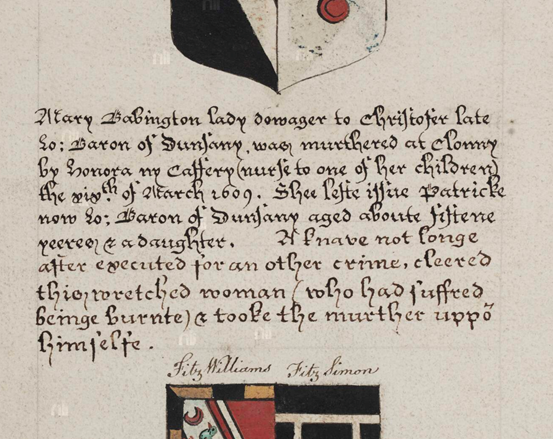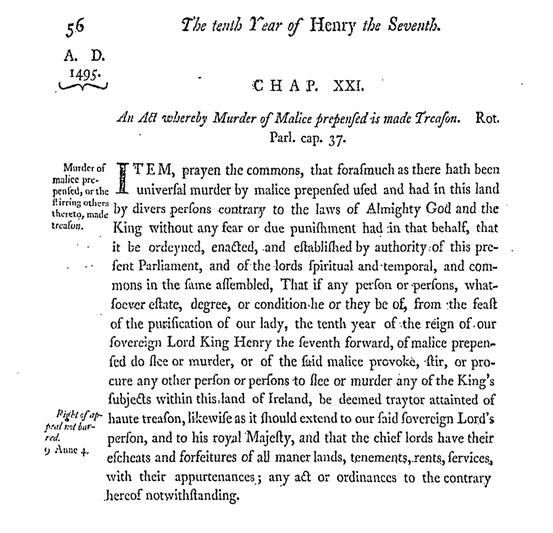Thanks for Prof Ciaran McCullagh for sending this on. It is very unusual for the ASC to issue a statement of this nature. Here they use evidence to take Trump and his administration to task on their ‘alternative facts’ concerning crime and justice.
Statement of the American Society of Criminology Executive Board Concerning the Trump Administration’s Policies Relevant to Crime and Justice
The Trump administration has signaled its crime policy intentions through a series of Executive Orders signed in the President’s first several months in office.i These executive orders demonstrate an incongruity between administrative policy efforts and well-established science about the causes and consequences of crime. Four general areas are especially emblematic of this problem.
Immigrants do not commit the majority of crime in the United States. First, a century’s worth of findings on immigration and crime in the U.S. show that immigrant concentration decreases crime at the neighborhood and city levels – also known as the revitalization thesis.ii That immigration is a protective factor against crime also holds true for individuals; immigrants as a whole are far less likely to commit crimes than non-immigrants.iii Recent examples of crimes committed by unauthorized immigrants are not representative of national, state, neighborhood, or even individual-level violent crime trends,iv yet the President and his administration present them as the norm. This erroneous view underlies executive orders that see immigrants as criminogenic, and that threaten cities receptive to immigrants (i.e., sanctuary cities) to cooperate with federal immigration enforcement or face the withdrawal of federal funding, and also is reflected in development of the new Victims of Immigration Crime Engagement (VOICE) Office.
The proposed travel ban is not empirically justified and targets the wrong countries.
Second, there is no empirical evidence to support President Trump’s decision to ban citizens of six majority-Muslim countries from travel to the U.S. in the name of preventing terrorist infiltration. No terrorist perpetrator from Iran, Libya, Somalia, Sudan, Syria or Yemen – whose nationals would be halted from U.S. travel under Trump’s Executive Order of March 2017 – has been involved in a fatal terrorist attack in the United States since September 11, 2001.v Every jihadist who conducted a lethal attack in the United States since 9/11 was a United States citizen or legal resident, while the three countries from which the deadliest terrorists have come to the U.S. are Saudi Arabia, the United Arab Emirates, and Egypt – none of which are included in the travel ban.
The U.S. is not in the midst of a national crime wave. Third, rates of violent and property crime have been declining in the U.S. for at least a quarter century.vi Many criminologists have referred to this post-1990s period as “the great crime decline.” It is true that some cities experienced large increases in homicide in 2015, but this is not indicative of a national pattern as homicide rates overall remain significantly below 1990s peaks.vii As for violent crime generally, recent projections anticipate that violent crime rates in America’s 30 largest cities will increase slightly next year, but will still remain near 30-year lows.viii That our nation and cities are safer now than at least the 1990s has been disregarded by an executive order that would empower the federal government to make fighting a non-existent crime wave a top priority.
The U.S. government plays an important role in police reform. Finally, the federal government has played a critical role in recent decades in the reform of U.S. police departments. Most recently, former President Obama convened a task force on policing in the wake of police
violence against African Americans. The report generated by this task force advances a number of empirically-based solutions aimed at improving policing, rebuilding community trust in the police, and ensuring officer safety and wellness.ix In addition, the federal government has intervened in the form of consent decrees in U.S. cities that have well-established patterns of police discrimination and abuse. These consent decrees are designed to create long-term and system-wide pathways for police reform, including funds to do so. Attorney General Jeff Sessions’ call for sweeping review of these consent decrees can signal both to law enforcement and to citizens that such problems are not systemic but instead simply the result of “a few bad apples.”x Research indicates that this is not necessarily the case.xi Pulling back on the use of consent decrees could undermine police reform efforts and dial back hard-won progress that many police leaders support.
Recent Presidential executive orders and other administrative decisions are at odds with established evidence in criminology and criminal justice.xii Crime-control policies should be built on science, and elected officials at all levels of government have a responsibility to endorse public policies that are evidence-based and that promote fairness, equality, and justice. The Executive Board of the American Society of Criminology is concerned by the actions of the Trump administration in its dissemination of misinformation and development of uninformed policy initiatives. Not only are these initiatives unscientific, they are likely to engender further cynicism about and discontent with the criminal justice system that is harmful to citizens, to members of law enforcement, and to other sources of social control.xiii Rather than keeping Americans safer, these initiatives stand to exacerbate existing crime problems by increasing risk of victimization while decreasing likelihood of reporting, and by worsening marginalization and discrimination in the U.S.
We urge the Trump administration to draw upon scientific evidencexiv and the research expertisexv of scholars who study crime and justice issues to help shape its crime policy agenda, and we stand ready to assist. Specifically, we caution the Trump administration against the resuscitation of Drug War era “get tough” policies and other “law and order” crackdowns that stand to worsen already strained relations between police and communities, especially communities of color, and policies that disparately arrest, prosecute, and incarcerate members of these communities. Evidence has shown such policies to create many unintended problems for families, children, law enforcement personnel, and other institutions across our nation. Furthermore, we advocate for a justice system that recognizes the adverse impact of draconian punishments and that seeks to prioritize beneficial reentry and social integration programsxvi that hold offenders accountable while still allowing them to maintain bonds with their families and communities. Our discipline has learned muchxvii about reducing crime, policing smarter, and punishing more effectively over the years, and we urge the Trump administration to draw from these lessons learned in order to advance policies that preserve and protect due process rights for all, and that promote justice at home and abroad.
James Lynch, University of Maryland; President, American Society of Criminology (ASC) Karen Heimer, University of Iowa; ASC President-Elect
Ruth D. Peterson, The Ohio State University; ASC Past-President
Jody Miller, Rutgers University; ASC Vice President
Christina DeJong, Michigan State University; ASC Vice President-Elect
Gaylene Armstrong, University of Nebraska; ASC Executive Counselor
Delores Jones-Brown, John Jay College of Criminal Justice; ASC Executive Counselor Natasha Frost, Northeastern University; ASC Executive Counselor
Charis Kubrin, University of California-Irvine; ASC Executive Counselor
Cynthia Lum, George Mason University; ASC Executive Counselor
Ineke Marshall, Northeastern University; ASC Executive Counselor
Hillary Potter, University of Colorado; ASC Executive Counselor
Claire Renzetti, University of Kentucky; ASC Executive Counselor
María B. Vélez, University of New Mexico; ASC Executive Counselor
Chris Eskridge, University of Nebraska; ASC Executive Director
Bonnie Fisher, University of Cincinnati; ASC Treasurer
Amanda Burgess-Proctor, Oakland University; Member, Ad-hoc Committee on the ASC’s
Statement on the Presidential Administration’s Policies Relevant to Crime and Justice
Gary LaFree, University of Maryland; Member, Ad-hoc Committee on the ASC’s Statement on
the Presidential Administration’s Policies Relevant to Crime and Justice
Sheldon X. Zhang, University of Massachusetts-Lowell; Member, Ad-hoc Committee on the
ASC’s Statement on the Presidential Administration’s Policies Relevant to Crime and Justice
i https://www.whitehouse.gov/briefing-room/presidential-actions/executive-orders
ii Gonzalez-O’Brien, B., L. Collingwood, and S. Omar El-Khatib. Forthcoming. “The Politics of Refuge: Sanctuary Cities, Crime, and Undocumented Immigration.” Urban Affairs Review.
Lyons, C.J., M.B. Vélez, and W.A. Santoro. 2013. “Neighborhood Immigration, Violence, and City-Level Immigrant Political Opportunities.” American Sociological Review. 78: 604-632.
Martinez, R., J.I. Stowell, and M.T. Lee. 2010. “Immigration and Crime in an Era of Transformation: A Longitudinal Analysis of Homicides in San Diego Neighborhoods, 1980–2000.” Criminology. 48: 797– 829.
Oussey, G.C. and C.E. Kubrin. 2009. “Exploring the Connection between Immigration and Violent Crime Rates in U.S. Cities, 1980-2000. Social Problems. 56: 447-473.
Stowell, J.I., S.F. Messner, K.F. McGeever, and L.E. Raffalovich. 2009. “Immigration and the Recent Violent Crime Drop in the United States: A Pooled, Cross-Sectional Time-Series Analysis of Metropolitan Areas.” Criminology. 47: 889–928.
Wadsworth, T. 2010. “Is Immigration Responsible for the Crime Drop? An Assessment of the Influence of Immigration on Changes in Violent Crime between 1990 and 2000.” Social Science Quarterly. 91: 531-553.
Zatz, M.S., and H. Smith. 2014. “Immigration, Crime, and Victimization: Rhetoric and Reality.” Annual Review of Law and Social Science. 8: 141-159.
iii Vaughn, M.G., C.P. Salas-Wright, M. DeLisi, and B.R. Maynard. 2014. “The Immigrant Paradox: Immigrants are Less Antisocial than Native-Born Americans.” Social Psychiatry and Psychiatric Epidemiology. 49: 1129-1137.
iv http://www.sentencingproject.org/wp-content/uploads/2017/03/Immigration-and-Public-Safety.pdf http://www.pewresearch.org/fact-tank/2016/11/03/5-facts-about-illegal-immigration-in-the-u-s/
vi https://ucr.fbi.gov/crime-in-the-u.s/2014/crime-in-the-u.s.-2014/tables/table-1
Baumer E.P. and K.T. Wolff. 2014. “Evaluating Contemporary Crime Drops in America, New York City,
and Many Other Places.” Justice Quarterly. 31:5-38
Blumstein A. and J. Wallman. 2006. The Crime Drop in America. Cambridge University Press.
vii Rosenfeld, R. 2016. Documenting and Explaining the 2015 Homicide Rise: Research Directions. Washington, DC: National Institute of Justice (https://www.ncjrs.gov/pdffiles1/nij/249895.pdf).
viii https://www.brennancenter.org/sites/default/files/analysis/Crime_in_2016_Updated_Analysis.pdf ix https://cops.usdoj.gov/pdf/taskforce/taskforce_finalreport.pdf
x https://www.nytimes.com/2017/04/03/us/justice-department-jeff-sessions-baltimore-police.html?_r=0 xi
xiii http://lawenforcementleaders.org/wp-content/uploads/2017/02/LEL_Agenda_for_a_ New_Administration.pdf
xiv https://www.crimesolutions.gov/
xv http://crimeandjusticeresearchalliance.org/
xvi https://www.nij.gov/topics/corrections/reentry/Pages/welcome.aspx xvii http://press.uchicago.edu/ucp/books/series/CJ.html
v https://www.cato.org/blog/guide-trumps-executive-order-limit-migration-national-security-reasons http://www.start.umd.edu/profiles-individual-radicalization-united-states-pirus-keshif
http://www.politifact.com/truth-o-meter/statements/2017/jan/29/jerrold-nadler/have-there-been-terrorist- attacks-post-911-countri/
National Research Council, National Academy of Sciences. 2004. Fairness and Effectiveness in
Policing: The Evidence. Washington, DC: National Academies Press.
xii Stowell, J.I., S.F. Messner, M.S. Barton, and L.E. Raffalovich. 2013. “Addition by Subtraction? A Longitudinal Analysis of the Impact of Deportation Efforts on Violent Crime.” Law & Society Review. 47: 909–942.




